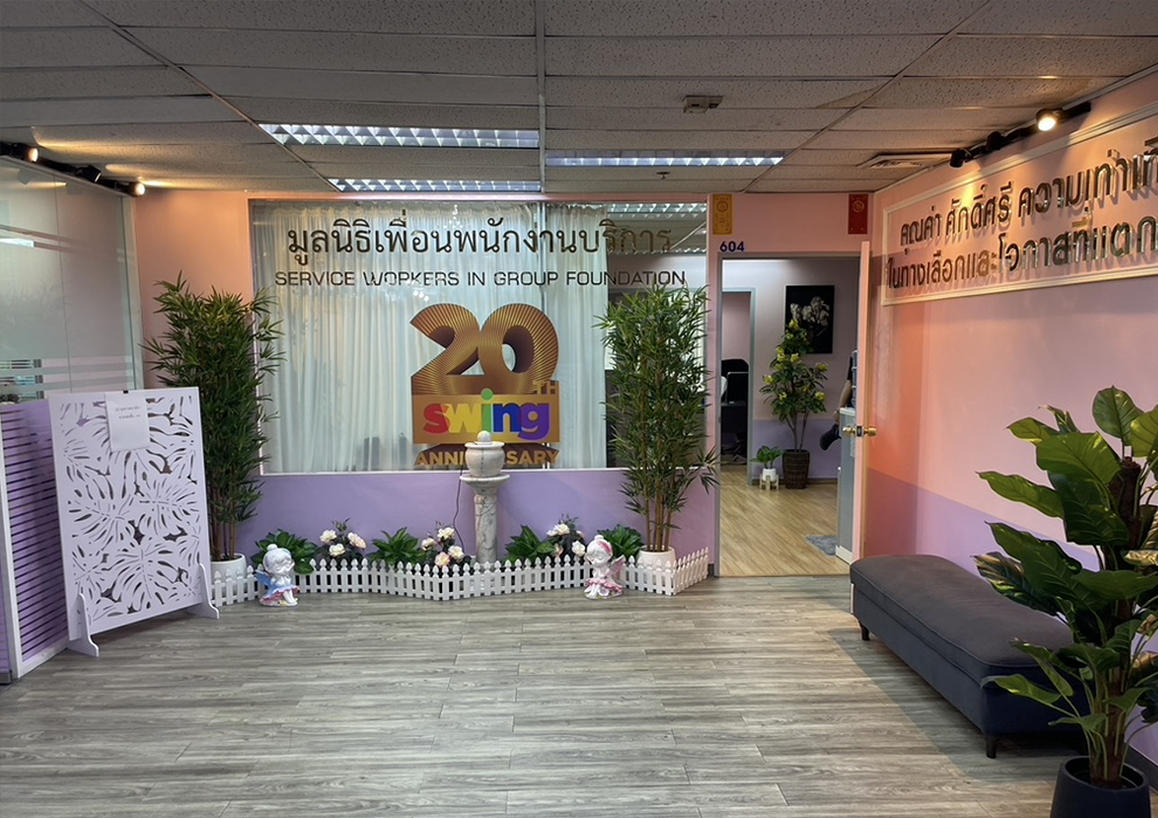“Testing a Stigma Reduction Intervention among Transgender Women Living with HIV in Bangkok, Thailand”
Stigma remains a major risk factor impacting the well-being and survival of people living with HIV (PLWH), especially socially marginalized groups such as transgender women. Decades of research have consistently shown that HIV-related stigma undermines access to healthcare and social support, adversely affecting mental health, medication adherence, and overall self-management. Marginalized populations—including women, ethnic minorities, and sexual and gender minorities—are particularly vulnerable to the effects of HIV stigma, which can lead to poorer physical and mental health outcomes and decreased life expectancy. In Asia, and particularly in Thailand, HIV stigma continues to pose a significant barrier to effective care. Thailand has the highest HIV prevalence in the Asia-Pacific region, with approximately 1.2% of its adult population living with HIV. Vulnerable groups include men who have sex with men (MSM), transgender individuals, sex workers, and people who use substances. Despite advances in treatment, stigma remains a key obstacle preventing many from accessing care or adhering to antiretroviral therapy (ART). Among Thai PLWH, the stigma contributes directly to a higher mortality rate, with 3.56% reported in 2016.
Transgender women in Thailand living with HIV (TWLH) face intense and multifaceted stigma—external, internalized, healthcare-based, cultural, and legal—that affects nearly every aspect of life. Although Thailand is widely seen as progressive on gender issues, deeply rooted cultural and religious beliefs, including those stemming from Buddhism, contribute to discrimination. These views often frame transgender identities and HIV as karmic consequences, further internalizing stigma among TWLH and discouraging care engagement. Despite the growing body of literature, few interventions explicitly address HIV stigma in the Thai cultural context. This study seeks to culturally adapt and evaluate a 4-week, 2-hour weekly group-based stigma reduction intervention for Thai PLWH. Grounded in Buddhist-Thai cultural principles, the intervention leverages local understandings of health, suffering, and karma to reduce internalized stigma and enhance engagement in care. The hypothesis is that participation in this intervention will result in lower internal stigma and improved health engagement.
This project will pilot a randomized controlled trial (RCT) testing the feasibility, acceptability, and preliminary efficacy of an adapted intervention among 10 TWLH. Participants will be randomly assigned to either an enhanced treatment group or treatment-as-usual. Data collection at weeks 1, 4, 7, and 10 will include measures of internal and external stigma, mindfulness, compassion, beliefs in karma, and care engagement, including patient-reported and clinical outcomes. This study offers two major innovations: (1) a culturally sensitive framework tailored to Buddhist-influenced societies, increasing intervention feasibility and generalizability; and (2) a targeted approach to intersectional stigma experienced by TWLH. The findings will inform future iterations of the intervention and contribute to the global toolbox for stigma reduction. A culturally grounded intervention that reduces internalized stigma and improves care engagement could play a key role in addressing the HIV epidemic among Thailand’s underserved transgender population.
Image caption: The study site: Service Workers in Group Foundation (SWING) in Thailand, Bangkok. Photo credit, Wei-Ti Chen.
People
Wei-Ti Chen
Wei-Ti Chen, RN, CNM, PhD, FAAN, is a Professor at UCLA School of Nursing and a certified nurse-midwife with three decades of HIV research experience across Asia and the U.S. Her work focuses on stigma reduction, ART adherence, and mental health among underserved populations. She has collaborated with institutions such as the China CDC, Taiwan CDC, and Chiang Mai Rajabhat University. With over 130 HIV and chronic disease-related publications, Dr. Chen uses both qualitative and quantitative methods, drawing on rich narratives to inform culturally responsive interventions for people living with HIV.



